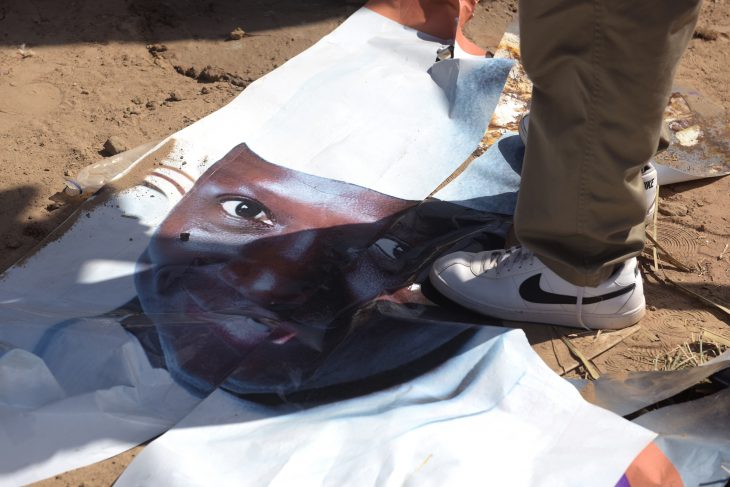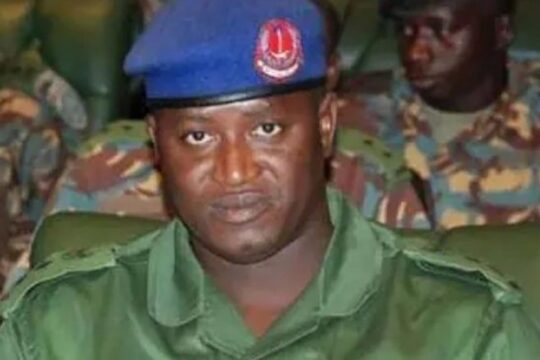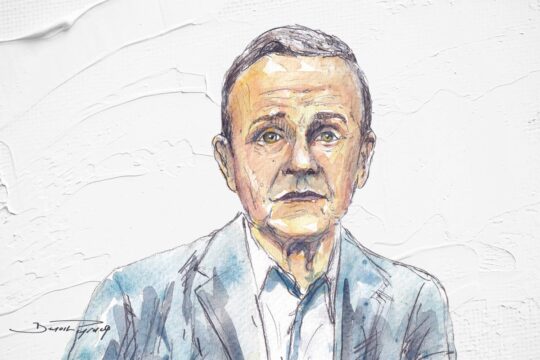This week JusticeInfo.net took a closer look at transitional justice issues affecting Gambia, where civil society is campaigning to bring ex-dictator Yahya Jammeh to justice, and Sri Lanka, where the government is dragging its feet on promises of justice for victims of the civil war. We also looked at human rights in a forgotten country, Laos.
In Gambia Baba Hydara, son of journalist Deyda Hydara who was one of the suspected victims of Jammeh’s 25-year dictatorship, explained his fight to get justice. The journalist was assassinated on December 16, 2004, with Jammeh’s death squad widely believed to be behind his murder. Jammeh is currently in exile in Equatorial Guinea.
“We are aware that for the moment Gambia’s judicial system is not ready to try Jammeh, for different reasons, both structural and political,” Baba Hydara told JusticeInfo. “That is why our coalition, which comprises victims, African human rights activists and international organizations, met in October in Banjul, the Gambian capital, to brainstorm on realistic alternatives. We know it will take time, but we have determination and patience.”
This coalition “Jammeh2justice” takes inspiration from the example of Chad’s ex-dictator Hissène Habré, who was finally brought to trial and convicted. American jurist Reed Brody, who fought to bring Habré to trial, is advising the Gambian coalition. He brought Chadian victims to a meeting in Banjul.
“The discussions were really interesting,” says Hydara. “We learned a lot about their fight for justice. It gave us ideas. But we do not want to wait 20 years or more, we would like to move things forward as quickly as possible. That’s why we are trying to learn lessons from their struggle and to be as efficient as possible.”
In Sri Lanka too, people are still waiting for justice, as explained by jurist Richard Rogers, Secretary and member of MAP (Sri Lanka Monitoring and Accountability Panel), which is monitoring the situation in Sri Lanka on behalf of victims. “I think there have been no practical steps taken by the government that can bring redress to the victims of the war that ended in 2009,” says Rogers. He says the government has not acted on its promises and, even worse, abuses are ongoing. “There have been further human rights abuses committed by government actors,” he told JusticeInfo. “There have been reports of more people disappearing, of more people being tortured, and there are still many people in detention facing either no justice at all or unfair systems of justice, for example under the Prevention of Terrorism Act.” Rogers denounces a lack of action by the international community, notably the UN Human Rights Council, whereas “the crimes committed in Sri Lanka were certainly some of the worst this century. There were more than 40,000 people killed just in the last two years of the war and hundreds of thousands of people displaced”.
Another forgotten country where there is no justice is Laos. It is now five years since the disappearance of respected local activist Sombath Somphone. The Communist government does not even admit to having arrested him. Anne-Sophie Gindroz, who worked alongside him, tells in an interview with JusticeInfo how the government rules through fear. “It is a very deceiving picture, because Laos is a beautiful country exuding social harmony and serenity,” she says. “But when we dig a little deeper, there is a very dark side about which almost nothing is said, because there are no human rights organizations working in Laos. The local organizations are not authorized to deal with these issues, and big international organizations like Amnesty International and Human Rights Watch have no access.” In Laos too there is a lack of international pressure. According to Anne-Sophie Gindroz ,“ EU representatives seem satisfied with bogus replies (from the Laotian government)”.
And so the government of Laos can pursue with impunity its land-grabbing and repression of critical voices. Anne-Sophie Gindroz’s book “Laos, the Silent Repression” can be downloaded from our website.







